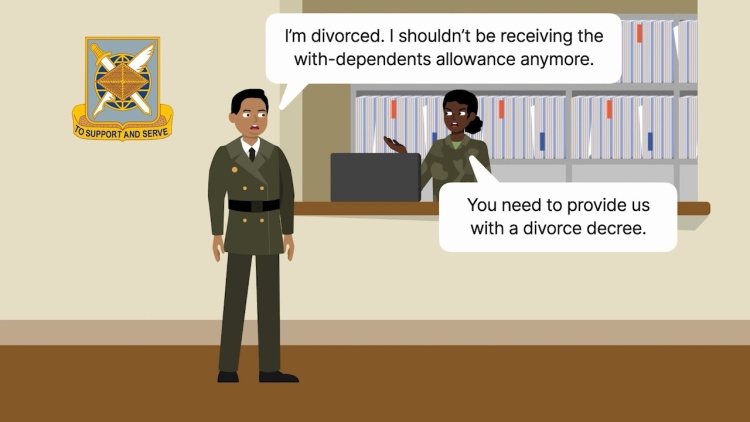United States v. Oglivie
United States Army Court of Military Review
29 M.J. 1069 (1990)
- Written by Jamie Milne, JD
Facts
While stationed in Panama in 1986, Sergeant Oglivie (defendant) married his first wife, Amparo. When Oglivie was reassigned to Germany, and later to Oklahoma, Amparo remained in Panama, and Oglivie, who did not have Amparo’s address or telephone number, communicated with her only though a friend. In August 1988, Oglivie filed for divorce in Oklahoma and sent a copy of the divorce petition to his friend in Panama. Later that year, Amparo contacted Oglivie to inform him that she had filed for divorce in Panama. After this communication, Oglivie believed he was legally divorced. Reinforcing this belief was a communication from the Red Cross referring to Amparo as Oglivie’s ex-wife. Because a copy of a divorce decree, which Oglivie did not have, was required to modify basic allowance for quarters (BAQ) to a single person’s rate, Oglivie modified a copy of a friend’s divorce decree and submitted it to the finance office of the base where he was stationed. In December 1988, Oglivie married his second wife and requested that his BAQ be reinstated to the married person’s rate. Oglivie was charged under the Uniform Code of Military Justice (UCMJ), 10 U.S.C. §§ 801–946, for, among other offenses: (1) making two false official statements to the finance office, (2) bigamy, and (3) altering a public record. Oglivie pled guilty to altering a public record but was also convicted, against his pleas, of bigamy and making the two false official statements. Oglivie appealed on the ground that his mistake as to his marital status was a defense to the charges.
Rule of Law
Issue
Holding and Reasoning (Foreman, J.)
What to do next…
Here's why 907,000 law students have relied on our case briefs:
- Written by law professors and practitioners, not other law students. 47,100 briefs, keyed to 996 casebooks. Top-notch customer support.
- The right amount of information, includes the facts, issues, rule of law, holding and reasoning, and any concurrences and dissents.
- Access in your classes, works on your mobile and tablet. Massive library of related video lessons and high quality multiple-choice questions.
- Easy to use, uniform format for every case brief. Written in plain English, not in legalese. Our briefs summarize and simplify; they don’t just repeat the court’s language.








